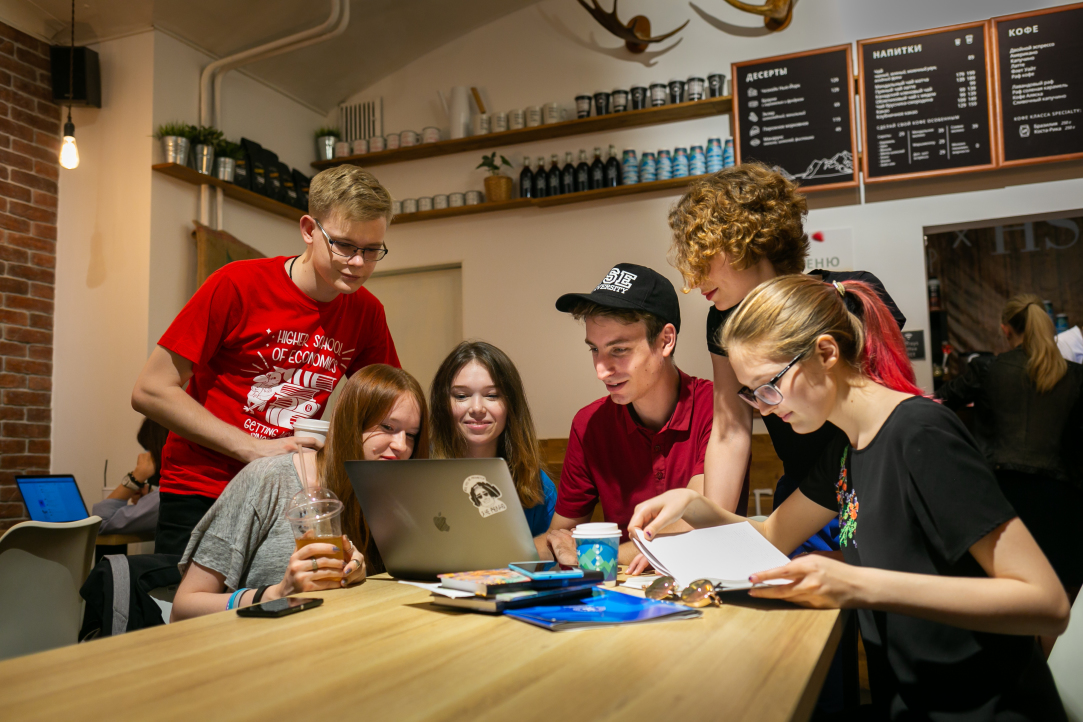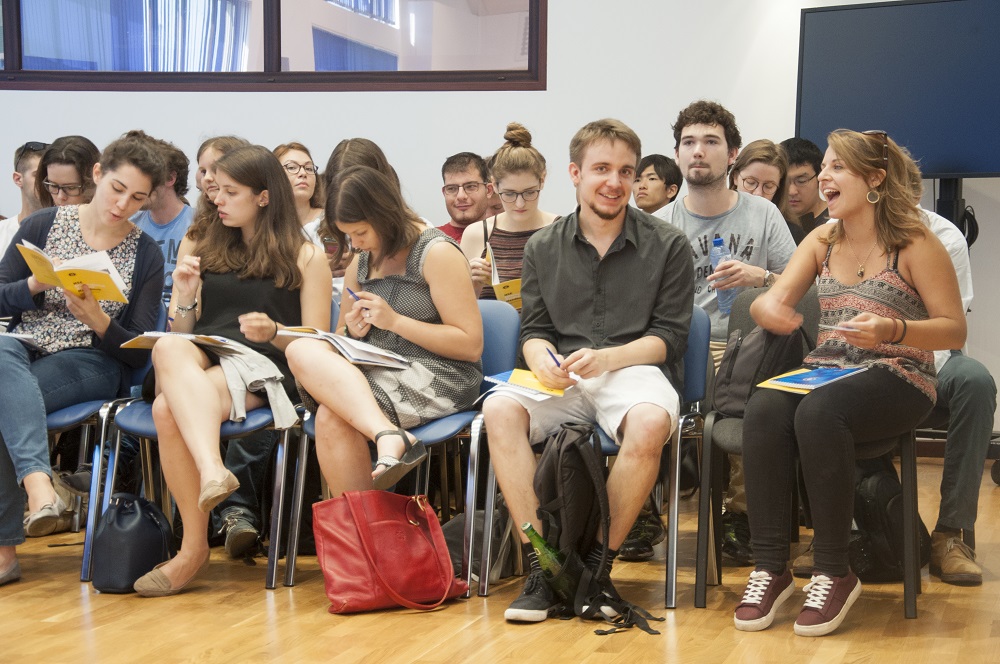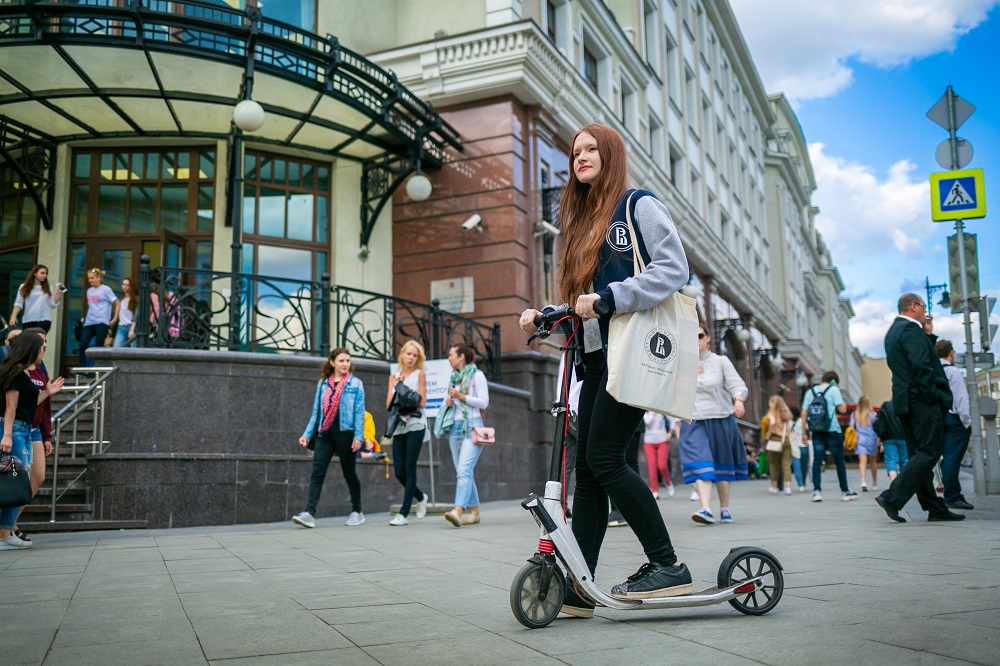Adapting to a New Habitat: Resources for International Students at HSE

More and more international students are coming to HSE University as part of their study abroad experience. In the 2018-2019 academic year HSE University hosted 445 exchange students, compared to 342 last year. The largest numbers of international students come from Germany, France, Italy, the Netherlands, and the UK. Is life easy for international students at HSE University? And what does HSE University do to help them?

Orientation Sessions and Workshops
The Student International Mobility Office (SIMO) oversees student exchange studies at HSE University. ‘We begin preparing our incoming students from our foreign partner universities several months before they arrive,’ says Sofia Sadykova, Head of the SIMO.
‘We hold special webinars about how to prepare for visiting Russia. We also introduce students to our site that contains lots of useful information, invite them to subscribe to the HSE International Students group on Facebook, and advise them to contact ESN HSE Moscow for help. In addition, we are in constant communication with the students and their coordinators at their home universities via email and sometimes by phone.’
Once students arrive on campus, they attend an orientation session. ‘Every semester at HSE we host a mandatory three-day orientation for exchange students,’ says Sofia Sadykova. ‘At the orientation we tell the students about HSE, the requirements of the visa-migration laws here, the HSE dorm rules, medical insurance, and what to do in various emergency situations.
‘Additional, separate sessions and workshops deal with the educational process: students learn how to find and enroll in the courses they need, how to view the timetable, and who they can contact if they have questions. By the way, all the students are assigned to a particular programme office where an English-speaking manager helps them with academic and course-related issues.’
HSE Buddy Club
Another source of support is the HSE Buddy Club, run by the Erasmus Student Network (ESN HSE Moscow), which pairs international students with Russian ‘buddies’ who can help them with everyday errands and activities. ‘A buddy is an HSE student, a peer who helps international students here adapt to the university and the city,’ explains Buddy Coordinator Veronika Mezentseva.
Buddies help international students with situations where they need to speak Russian—for example, when a student needs to get an HSE University pass or go to the doctor. Buddies also keep your spirits up. They are a foreign student’s very first friend in Moscow
According to Veronika, almost all international students apply for help at some point. Some need long-term support, and some need help acclimating at first and then dealing with unexpected challenges here and there later on—for example, maybe they get sick or maybe they can’t find something they need at the store.
Leo Buldof, an exchange student from Humboldt University in Germany, took advantage of the programme and was paired with an HSE student, Polina. ‘I needed Polina’s help a lot at the beginning because you need to do a lot of paperwork—you have get your university pass, and the process is entirely in Russian, and I didn’t know how it works. So Polina accompanied me and assisted me in all these things. She also helped me get a Troika transport card.’
Jenil Reynolds from the University of Ferrara in Italy also requested a buddy. ‘When I had to get my Russian medical insurance, I just called my buddy, and she came with me. She took me to the necessary place and everything. Anytime I need help, I just get help from my buddy. Many people lose touch with their buddies after the beginning of the semester, but my buddy and I talk from time to time. It’s more like a friendship now.’

International Integration: Problems and Solutions
International exchange students live in three main dormitories in Moscow and often attend classes together. On the one hand, this simplifies the process of adapting to the university and the new living conditions: students do not feel lonely in an unfamiliar country and they receive ongoing support. On the other hand, this hinders their integration into the broader HSE University student community. According to a survey carried out at the end of each semester by the Internal Monitoring Centre together with the Student International Mobility Office, despite the fact that international students feel comfortable among other students, many do not manage to truly become part of the community within one semester – this is what 45% of respondents said about their experience with campus life at HSE.
Insofar as a big part of HSE’s secondary educational and extracurricular events are conducted in Russian, exchange students are sometimes not able to participate in them. According to survey results, this situation dissatisfied almost half of the respondents to some degree. ESN HSE Moscow is trying to solve this problem by bringing it to the attention of various student clubs and projects that organize various events in which both HSE students and exchange students could participate.
Sofia Sadykova of the Student International Mobility Office points to HSE’s steadily growing numbers of international students as both a good thing and a new challenge. ‘On the one hand, the growing numbers attest to the well-coordinated work of a number of HSE departments. On the other hand, they pose new challenges for the University. It is clear that we need to further develop the system we have in place for accepting and providing support for exchange students by creating conditions that are comparable to those of our partner universities.’
Zarina Yarkhamova and Maria Eremina
Photos by Mikhail Dmitriev

